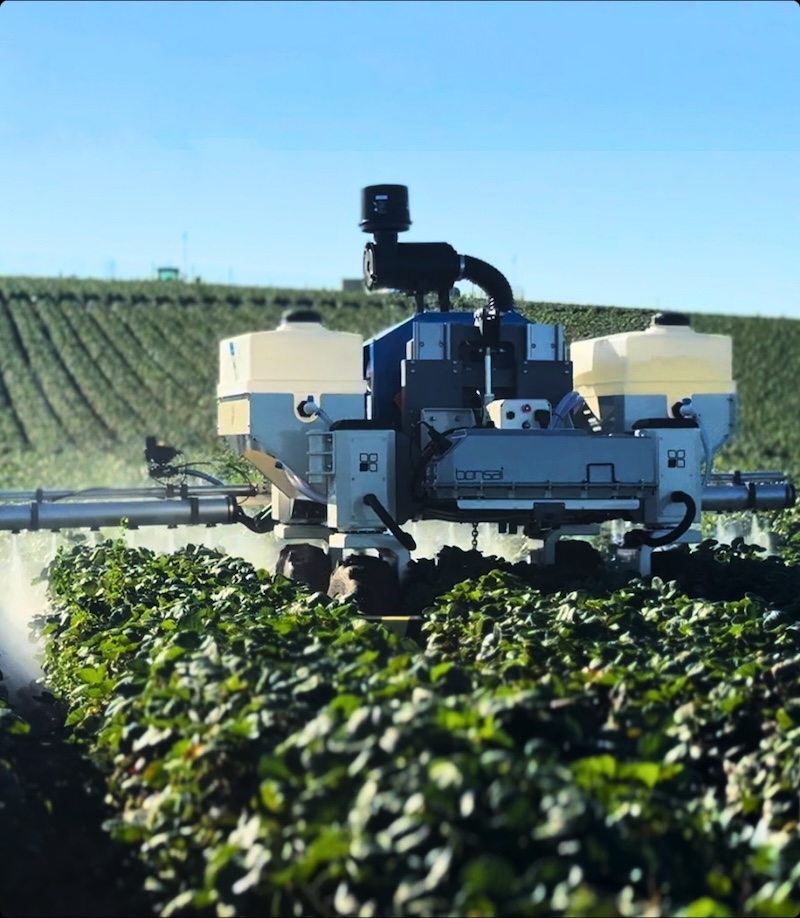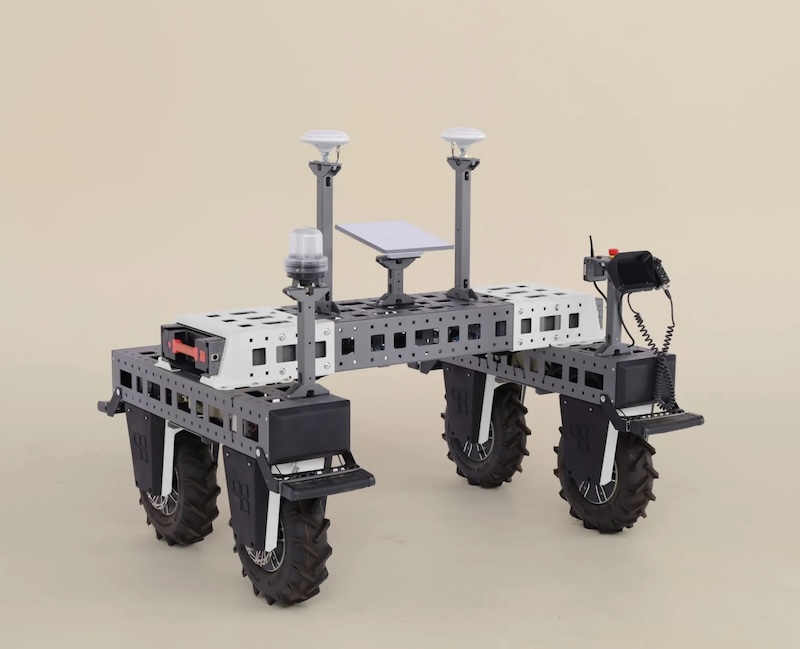Bonsai Robotics has introduced a new lineup of autonomous agricultural vehicles under its Amiga brand, marking the company’s first major product expansion since acquiring a company called “farm-ng” (sic) in July.
The company debuted the Amiga Flex, described as the first vehicle fully integrated with the company’s “Bonsai Intelligence” software stack. Two additional models – the Amiga Trax and Amiga Max – round out the new range, which aims to automate a variety of labor-intensive field operations.
Each system uses Bonsai’s vision-based autonomy platform to navigate complex farm environments without GPS.
The vehicles feature sensor arrays and perception algorithms that allow them to identify rows, obstacles, and terrain boundaries, supporting applications such as harvesting, mowing, spraying, and material transport.
According to Bonsai, the Amiga Flex offers an 800-pound payload, a 1,600-pound towing capacity, and over eight hours of runtime per battery pack. The modular design allows the platform to carry implements or tools for specific crops or field conditions.
Tyler Niday, CEO of Bonsai Robotics, says: “The Amiga Flex is our next step toward delivering affordable, intelligent autonomy to every grower.
“By uniting the heritage of farm-ng’s mechanical innovation with Bonsai’s AI-first autonomy software, we can bring practical automation to small and midsize farms faster than anyone else.”
The company’s Bonsai Intelligence platform uses AI and computer vision to handle perception, planning, and control, with the goal of enabling fully autonomous operation in diverse agricultural environments.
Bonsai Robotics said production of the new Amiga lineup will begin in 2026, with early pilot deployments already under way in vineyards, orchards, and specialty-crop farms across California.
Bonsai says the Amiga vehicles can perform a range of tasks: weeding, material transport or hauling, spraying, towing, mowing, and scouting (inspecting) crops.


